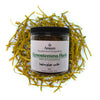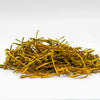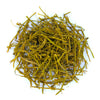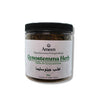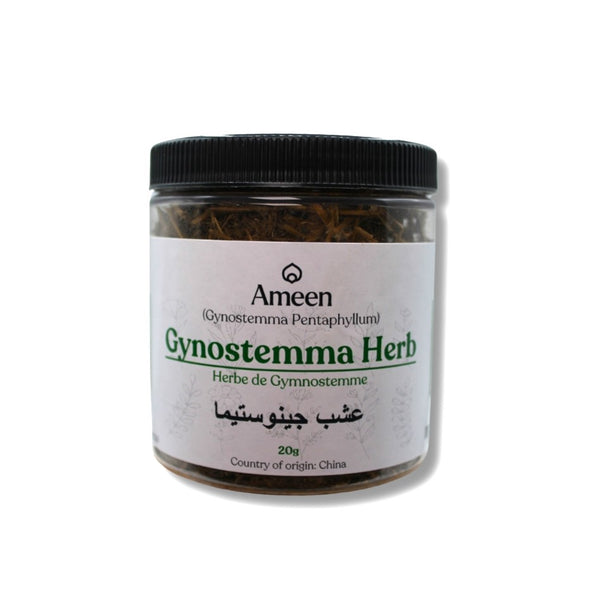Gynostemma, botanically known as Gynostemma pentaphyllum, is a climbing vine native to the mountainous regions of China, Japan, and Southeast Asia. Often referred to as “Jiaogulan” or the Immortality Herb, this lush green plant is treasured in traditional herbal practices for its versatility and gentle flavor. With small serrated leaves grouped in sets of five, Gynostemma brings both beauty and depth to herbal blends.
Culinary and Herbal Applications of Gynostemma
-
Herbal Teas: Gynostemma leaves are commonly dried and steeped to create a mild, slightly sweet infusion with earthy undertones.
-
Infusions and Decoctions: Ideal for daily tea rituals, often combined with other traditional herbs to create soothing blends.
-
Culinary Use: Occasionally added to soups or broths for a subtle herbal note and visual appeal.
Why Choose Gynostemma Herb?
-
Flavor Profile: Lightly sweet with a grassy, refreshing finish.
-
Traditional Use: Revered in East Asian herbal traditions for centuries.
-
Adaptable Form: Enjoyed loose-leaf, powdered, or blended in wellness teas.
Botanical and Cultural Identity
-
Botanical Name: Gynostemma pentaphyllum
-
Common Names:
-
English: Gynostemma, Jiaogulan, Southern Ginseng, Five-leaf Ginseng, Miracle Grass
-
Chinese: 绞股蓝 (Jiǎogǔlán)
-
Japanese: アマチャヅル (Amachazuru)
-
Other Names: Amacha Vine, Herb of Immortality, Poor Man’s Ginseng
-
A Gentle Herb Rooted in Tradition
From its delicate leaves to its long-standing reputation in herbal wellness, Gynostemma continues to be a favorite among tea lovers and herbal enthusiasts alike. Whether enjoyed for its calming flavor or its traditional uses, this vine embodies nature’s gentle touch in every sip.

